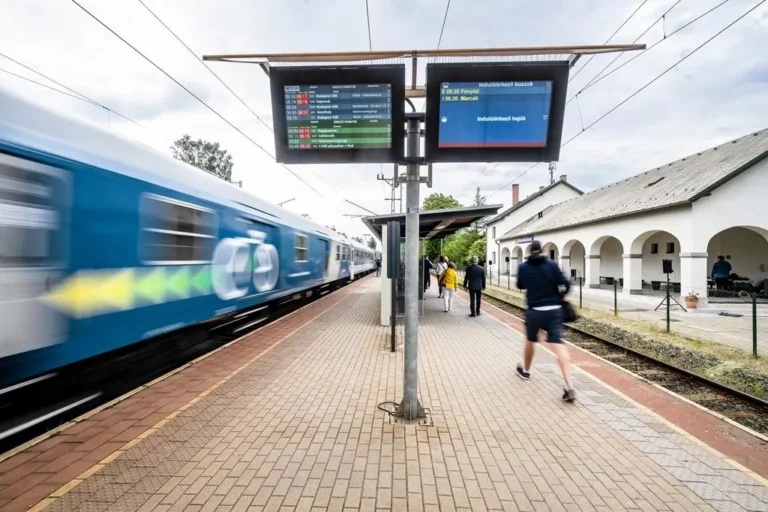railway
Hop on a festive train to Vienna and Zagreb’s Christmas markets with MÁV!

PM Orbán will build Europe’s most modern border crossing, sets finish date for 160 km/h railway line

Attention travellers! Major renovations underway at Budapest’s Keleti railway station – photos

Tragedy at Novi Sad railway station linked to Hungarian-owned firm, reports Serbian media

Holiday travel advisory: Changes to train and bus schedules in Hungary on 23 October

Railway stations in major Hungarian cities to be completely rebuilt with private capital

BREAKING NEWS: Train derailed at Keleti station, several trains delayed – UPDATE

New era for Hungarian transport: New national transport giant set to form

Attention: Detours at Keleti railway station in Budapest this weekend due to filming

Hungary’s railways left in the dust as government funnels billions into roads

Hungary’s road development project: Massive upgrades announced

Explore the Bakony Mountains: MÁV completes multi-billion forint rail upgrade to delight travellers

Explore stunning Central European capitals this Christmas with the Hungarian Orient Express – PHOTOS

PHOTOS: Budapest-Belgrade rail line upgrade reaches milestone today

Budapest suburban traffic lacks operational trains: Orbán’s former mayoral candidate Vitézy blames minister

MÁV-START tests used French Alstom electric locomotives to modernise Hungarian railways

Ambitious: Hungarian railway company MÁV embarks on a massive EUR 2 billion railway development

Sign of friendship? Subotica train station in Serbia won’t open until Hungarian signage is installed





 ZH
ZH IT
IT DE
DE HR
HR NL
NL FR
FR JA
JA RO
RO RU
RU ES
ES TR
TR
